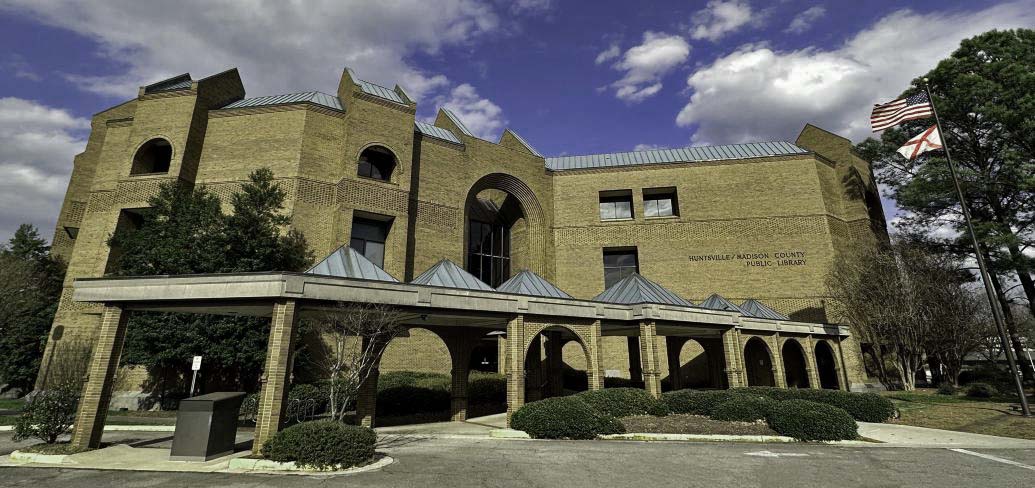|
Getting your Trinity Audio player ready...
|
The Huntsville-Madison County Public Library board of trustees voted Tuesday to adopt new policies to satisfy new state aid requirements.
The new policy prohibits the library from purchasing materials that are sexually explicit, obscene or inappropriate for minors if they are marketed toward juveniles under the age of 18.
The new selection criteria policy follows the lead of the Ozark-Dale County Public Library by defining “inappropriate for minors” by using the state definition of “harmful to minors,” which currently only applies to sexually explicit books.
House Bill 4, a bill that could allow librarians to be charged with a misdemeanor for having certain books on the shelf, also seeks to expand that definition to potentially include some materials and performances that blur gender lines.
Following the requirements of the Alabama Public Library Service, the library lists exemptions for age-appropriate materials regarding religion, history, biology or human anatomy.
The new policies also include changes to the library’s “young reader” cards, setting up there different levels of access that must be approved by a parent.
Level 1 allows the child only to check out books from the physical juvenile section. The child cannot check out books from the young adult section and has no digital library access.
Level 2 expands permissions to the physical young adult section, but still blocks access to the digital library.
Level 3 expands access to the entire library, including the adult section and digital library.
All juveniles 17 and under must have a young reader card in order to check out books for themselves.
The policy changes come after the board had mulled the possibility of simply forfeiting state aid—only necessary if the board could not find a way to meet the requirements that still served the community in a way they felt effective.
One of the few library systems in the state operating on a multi-million dollar budget, HMCPL is one of the few systems that could have considered that option without sacrificing key functions of the library.
Still, the $500,000 annual state allocation represents 6 percent of the library system’s overall budget and disproportionately represents up to 26 percent of the budgets of the system’s smallest libraries.
“From a governance perspective, we just have to do this,” board member Melissa Thompson told other board members.
Board members had expressed concern previously about the state aid requirements language and how it might affect the ability of patrons to access needed material. One example given was of a college student from out-of-state that needed to check out a book technically recommended for older teens. Would they need an adult present to allow that?
Under the approved policies, that situation would not be a problem, and any parent who wants their children to have free access to the library can approve so. The policies don’t appear facially to require the movement of LGBTQ+ books.
The Huntsville library came under scrutiny last year when numerous LGBTQ+ books were moved from the juvenile and young adult sections, including a book being moved simply because the author’s last name was “Gay.” Cindy Hewitt, executive director at the time, said there was a miscommunication as the library faced challenges, and the books have been placed back in their original locations.





















































